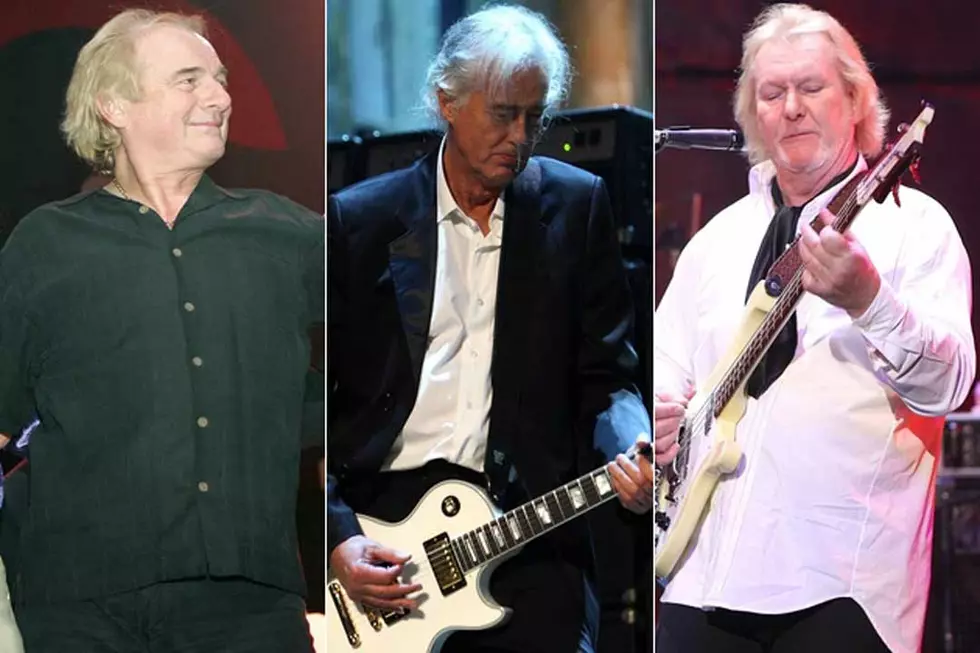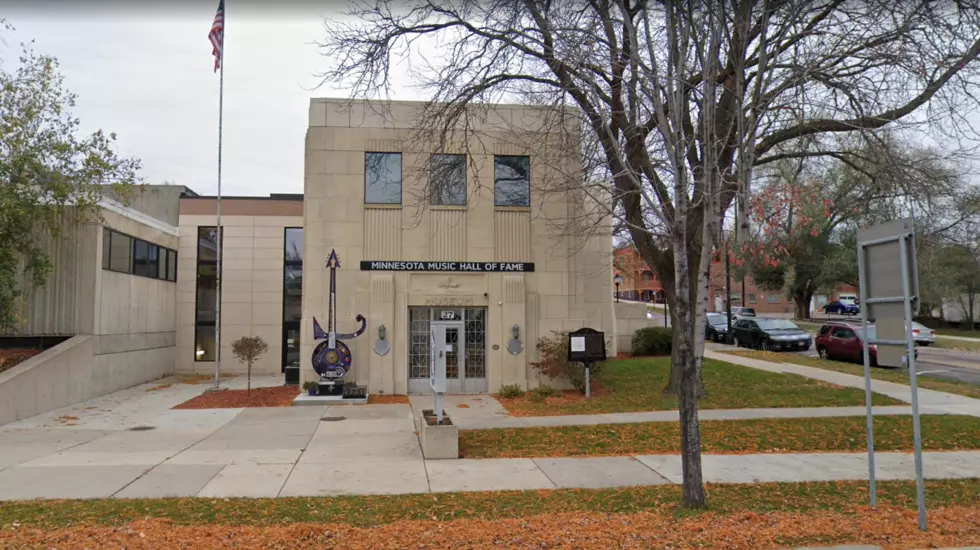
When Yes and Led Zeppelin Members Formed the Supergroup XYZ
Two of the most successful and influential British rock groups of the '70s – Led Zeppelin and Yes – had come to an end as a new decade got underway. Now, members of both were looking for new opportunities.
In April 1981, former Yes drummer Alan White and bassist Chris Squire got together with Zeppelin guitarist Jimmy Page for a proposed supergroup called XYZ – which could have also included Robert Plant, but never quite got off the ground.
Yes had been one of progressive rock's leading lights in the '70s, releasing a string of musically ambitious and commercially successful albums including Fragile, Close to the Edge and Going for the One. But the group had endured major member changes with the loss of front man Jon Anderson and keyboardist Rick Wakeman, and 1980's Drama – featuring singer Trevor Horn and keyboardist Geoff Downes from the pop group the Buggles – was a commercial disappointment.
Faced with declining sales and resistance from their fan base, Yes disbanded, and Downes joined guitarist Steve Howe in a new supergroup called Asia with ELP drummer Carl Palmer and former King Crimson bassist/singer John Wetton – leaving Squire and White without a project.
Enter Page, who was also at loose ends after the death of drummer John Bonham in September of 1980 led to the demise of Led Zeppelin that December. The mighty Zeppelin and Yes had been the two biggest acts on Atlantic Records in the '70s, but the musicians' getting together was by happenstance, not design.
"I met him at a Christmas party," Squire told the (Springfield, Mass.) Republican in 2010. "He said he’d like to start playing again, pull himself out of the depression after John’s death." Consequently, by the early part of 1981 Page joined Squire and White for a series of jams that turned into a new group they called XYZ -- which stood for ex-Yes/Zeppelin.
"We wrote a bunch of songs, Chris and myself, and we showed them to Jimmy," White told Hit Channel in 2012. "We went an evening to Jimmy’s house and jamming some stuff and it sounded really good." Different accounts place the dates anywhere from February to April of that year, during which time the trio – along with former Greenslade keyboardist and singer Dave Lawson – worked at Squire's home studio on a series of demos including "Mind Drive," "Can You See" and "Telephone Secrets."
Squire was the primary vocalist on the new material, but the group were hoping to attract a stronger, more recognizable front man. “Robert Plant was going to come in and join with us and do the singing at some point, but it was really a bit too soon after John Bonham departed this world for Robert to get back into it," the bassist told Noise11.com.
White recalled that the former Zeppelin front man wasn't entirely sold on the music he heard, either. "Robert Plant came and listened to our music, he thought it was complicated," he stated.
There were also divisions in the ranks as to whether former Yes manager Brian Lane or Zep manager Peter Grant should helm the new group, and in the end, the nascent band – like so many other all-star projects – just didn't come to fruition. Instead, Page joined former Bad Company singer Paul Rodgers in the Firm, borrowing from the XYZ demo for a track called "Fortune Hunter."
Squire and White teamed with fellow Yes alumni Tony Kaye, along with guitarist Trevor Rabin, for a new group called Cinema, which turned into a Yes reunion when singer Jon Anderson came on board. White says some of the XYZ material made its way into the music for 90125, while both "Can You Imagine" and "Mind Drive" eventually found their way onto subsequent Yes efforts in reworked versions.
Squire remains proud of the music from the aborted sessions with Page. "They were only demos. Nothing was ever finished but somehow they got snuck out of the studio by some engineer or somebody at some point," he recalled. "They are not finished demos if you track them down. They are quite exciting. It is worth having a look for them if you are interested."
Page agrees, even saying that he still hopes the music could see an official commercial release at some point. "I'll tell you the material was good," later told Rolling Stone. "I have the multi-tracks. I hope they see the light of day."
Rejected Original Titles of 30 Classic Albums
Was Jimmy Page Almost Part of Another Supergroup?
More From KYBB-FM / B102.7










